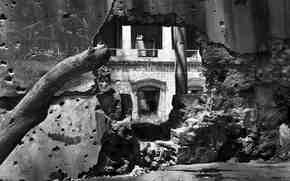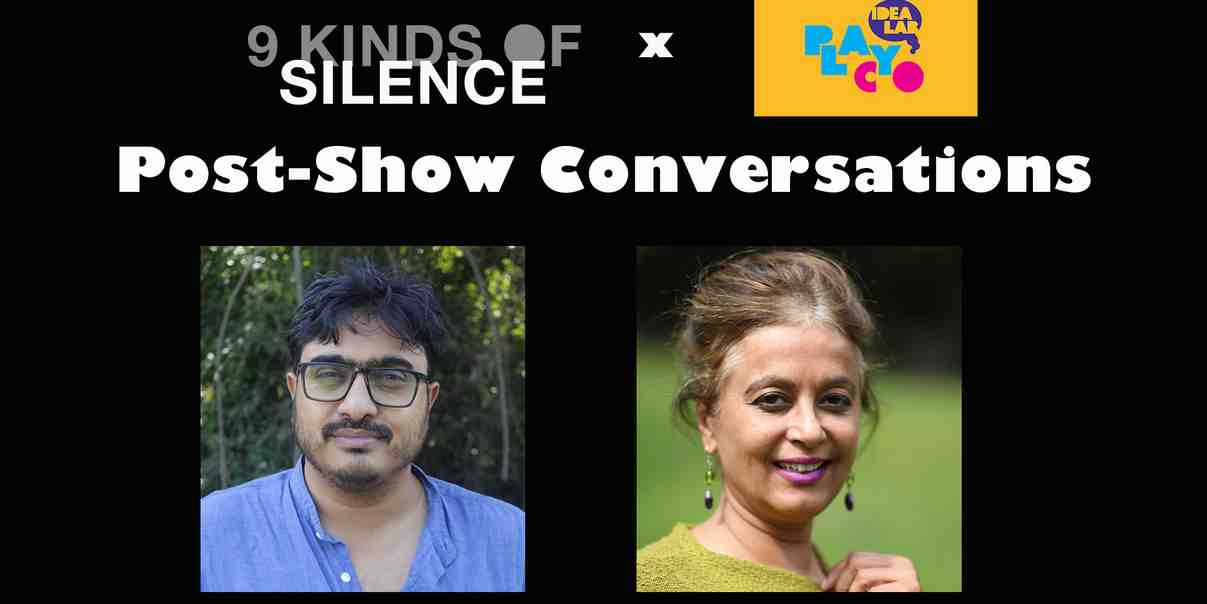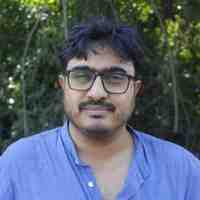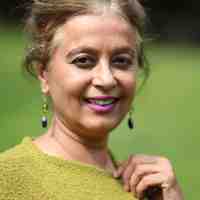

A Conversation between Abhishek Majumdar and Fawzia Afzal-Khan
Meet the Participants

Abhishek Majumdar is a playwright, scenographer, and director working in India and internationally. His work has been produced and commissioned in leading theaters of the world including Royal Court Theatre London, Prithvi Theatre Mumbai, Ranga Shankara Bangalore, Deutsch Shauspielhaus Hamburg, Ruhrfest Recklinghausen, Théâtre du Soleil Paris, National Theatre London, San Francisco Opera, PEN World Voices, Internacionale Dramaturgie Festival Buenos Aires and PlayCo New York amongst others. He is a recipient of multiple awards including the International Theatremakers award New York, Mahindra Excellence in Theatre Award Delhi, The Shankar Nag Rangakarmi Award Bangalore, the Toto Funds the Arts Award, Segal Center Award for Civic Engagement in the Arts, Best Director in London Movie Awards, Best Director 8 and Hal/ Film Festival (Rome) Awards amongst others. He works in Theater, Film and Opera. His book of essays, Theater Across Borders is published by Bloomsbury International as part of the Theatermakers series and he has been published, performed and translated in Hindi, English, French, German, Czech, Kannada, Bengali, Marathi, Kashmiri, and Spanish. He is the Artistic Director of Nalanda Arts Studio Bangalore and creative producer at New Voices Arts Project based in Bangalore. He is also Associate Professor at New York University in Abu Dhabi and the Program head of the Theater Program.

Fawzia Afzal-Khan is a schol-art-ivist, engaging her scholarship and performance work in the service of social justice ideals. She is a Professor of English, a University Distinguished Scholar, and former Director of the Women and Gender Studies Program at Montclair State University, NJ. She held a Visiting Professorship of the Arts at NYU in Abu Dhabi from 2016-18 and spent several semesters over the past two decades teaching at institutions of higher education in her native Pakistan, often as a Fulbright Fellow. She is the author of 6 books including one on Pakistani theatre and the women’s movement and a memoir about growing up in Pakistan.
She is a trained singer in the North Indo-Pakistani vocal classical tradition, a published poet and playwright, was a founding member and resident Sufi singer of the Compagnie Faim de Siecle, and has performed her one woman-show, Scheherazade Goes West: will the ‘Reel’ Muslim Woman Please Stand Up? at various locations around the world including the Smithsonian, Trinity College Dublin, the Brecht Forum NY, T2F in Karachi and the James Stewart Theatre, Princeton University. She and Shahid Nadeem have recently completed a 3 act play on TE Lawrence’s exploits in Lahore, Miranshah, and Kashmir after WW1. Her short play-in-progress, Palestinian/Pakistinian will be staged as a dramatic reading at the Budarz auditorium of Ossining Public Library by the Westchester Theatre Collective on September 27th.
She maintains a blog called www.travelingfeminista.com and her website can be accessed at www.fawziaafzalkhan.com
Fawzia, a schol-art-ivist, met Abhishek Majumdar, playwright and director of 9 Kinds of Silence, when she was a visiting professor at the Abu Dhabi campus of New York University. What initially seemed like a chance meeting evolved into a deeper connection when Abhishek realised that he had actually read Fawzia's book on Pakistani Political Theatre. This was the beginning of their creative journey together. Abhishek shared how Fawzia's book had reshaped his perspective, drawing him away from his studies in physics and mathematics to the realm of political theatre and social commentary.
"Is silence a dangerous form of speech when the cost of speaking out against authority is high?"
Working in Kashmir for many years, then Tibet and in many places of conflict, I realise that there is a language of protest or language of power which absolutely needs rethinking because it has been provided by those we are protesting again. One of his friends said this fascinating trivia: in America, by the age of 12, a child has seen 35,000 commercials, can you imagine? How are you free? Where is the space to be free? I think that’s just not an American phenomena though it might be an extreme. So the language of what we desire, what we desire to object to, our language of dissent - I find myself at loss to find originality in it right now. Silence is such a powerful thing. I saw Shaheen Bagh written on someone’s bag today; it was a major protest in Delhi. The government was terrified of these women who were just sitting, which is more scary than actually having missiles pointed at the government. They were just these women who were sitting there. There is great power in silence to be found!This play is set to explore the different kinds of silence. It will underscore the significance of silence in various moments and struggles to find a language to describe protests across the world, while referencing colonial structures.
What kind of research did you do for this film?
I teach in a university and I taught a class on silence. We brought in everything we could find from philosophy to theatre to music, art, cinema and all other kinds of materials. What does silence mean in different art forms and different ways of thinking? Japanese, Kyoto school thinks of it differently from Buddhist schools and so on. There is a person who I’ve acknowledged there, Kartik Srinivasan, who runs a lab in our university called the Srinivasan lab where he works with short term memory loss. He looks at cases where people have long term memory but lose short term memory. In another neuroscience lab, there is ongoing research about how the brain reacts when bullied(with mice). Essentially for me, it informed the way of creating speech for these characters in my play. Initially the son’s character used to speak a lot, 3-4 years ago. Throughout the pandemic he spoke less; by January his speech reduced even more and by August he only had to say this much. But it took a lot of time to shape this from understanding silence and neuroscience. These two were entry points for me to find the medium. A lot of it was created in rehearsals. The text is only 27 pages. When the three of us (himself and the actors) worked together. We first had to establish that Joe is in dialogue, and the play is not a monologue. His entire section is text that we have created during the rehearsal, you can say that it is co-written by the three of us and by the sound designer. He is like a third actor in the play!
The good thing about theatre making is that it is conceptual but also very technical. It’s like playing a game. I find this game interesting to play: how do we tell a story when we talk very quickly?
This piece does not have a traditional form? It is very evocative, how did you discover this form?
In my theatre training, there are 3 major influences. One of them is kuttiyattam.In kuttiyattam there are two texts, one, the kramadipika. Krama means chronology so it is the text of chronology. The second is attaprakaram, the text of the play, the acting. If two of us are acting as two characters, we will have the same kramadipika so we know the events happening in the play, that these events will happen tonight for certain. But we have different attaprakaram, my attaprakaram will tell me what my character does, and yours will say what your character does. If a different actor is given the same attaprakaram as me, he will interpret and play it differently than I will. Yes, they will follow the events, and do whatever is to be done but in their own way. The questions like: is this improvised or written or devised? These questions don’t hold in all traditions of theatre; not in Hon, not in Butoh, Kudiyattam, Kathakali or even Commedia Dell'arte. I was interested in how this can be brought to performance in a contemporary context.
The actors developed their atta, the krama is the only thing that is given to them. I wanted to bring this essence to my theatre. I am interested in making plays I don’t know how to make. Nine years ago, I came to PlayCo and we were workshopping a different play. I did a week of workshops and I came to a realisation that I do know how to make this theatre, I have done this before. So, I told Kate, I don’t want to make this. She said ‘fine, alright’; everyone was very generous in accommodating me. I get bored by the forms I am confident in, I am not interested. My next play will have so many words!
Throughout this process, what were your most memorable moments, or moments of discovery?
This was such an extraordinary process for me, very intense with a lot of professionalism. Sometimes, people’s intensity is unnecessary. I appreciate professionalism. I think I can speak about this process much better after six months because now, I’m still very much in the process.
Related Productions
